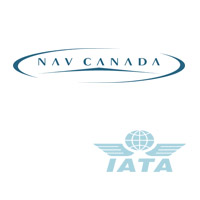
Canada’s private air traffic control system, Nav Canada, recently received its second “Eagle Award” from the International Air Transport Association. The Eagle Awards honor ANS providers for outstanding performance in customer satisfaction, cost efficiency, and continuous improvement.”
Republished from CATO Institute
Canada’s private air traffic control system, Nav Canada, recently received its second “Eagle Award” from the International Air Transport Association. The Eagle Awards “honor air navigation service providers and airports for outstanding performance in customer satisfaction, cost efficiency, and continuous improvement.”
In naming Nav Canada “the best” ATC, the IATA said the following in its press release:
Nav Canada is a global leader in the efficient implementation and reliable delivery of air traffic control procedures and technologies. It actively engages its customers at all levels in regular and meaningful consultations. “The performance of Nav Canada has been enhanced by the right technical and operational investments following extensive cost/benefit analyses. Nav Canada’s effective management has allowed the company to reduce its charges in 2006 and 2007, and freeze them at that level ever since,” Bisignani said.
The Federal Aviation Administration has been mismanaged for decades and provides Americans with second-rate air traffic control. The FAA has struggled to expand capacity and modernize its technology, and its upgrade efforts have often fallen behind schedule and gone over budget…The GAO has had the FAA on its watch list of wasteful “high-risk” agencies for years…Canada privatized its ATC system in 1996. It set up a private, nonprofit ATC corporation, Nav Canada, which is self-supporting from charges on aviation users. The Canadian system has received high marks for sound finances, solid management, and investment in new technologies.







